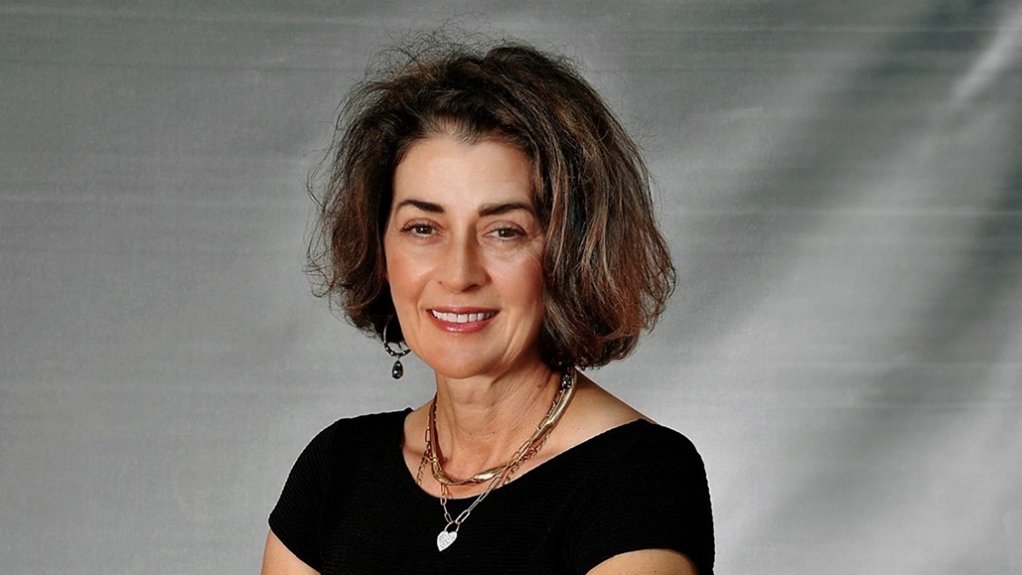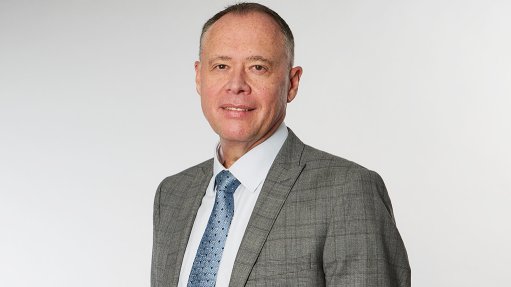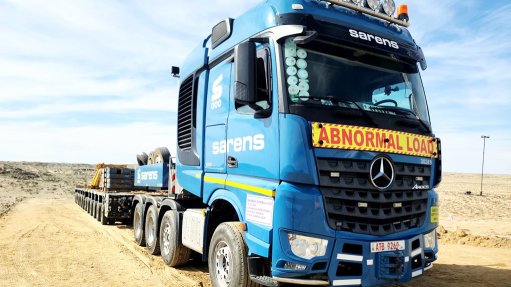Resilience key to career growth in logistics


JUANITA MAREEToday, the rhetoric must move as women progress beyond barriers on the strength of their skill sets
Amid the gender challenges in the logistics sector, Southern African Association of Freight Forwarders (SAAFF) CEO Dr Juanita Maree stresses the importance of women developing a “persistent, determined and undeterred mindset”, citing this as an essential ingredient for sustained professional success.
A tenacious attitude offers a powerful launchpad for women in the workplace, as this drives career development and affirms their visions and aspirations, especially as such a mindset would result in their approaching difficulties as ‘hurdles’ rather than as ‘destinations’, she says.
Maree stresses the importance of combining patience with purposefulness to make steady progress in this sector, adding that the emphasis on ‘international’ often implies that women’s issues are ‘leapfrogged’ to get the thinking to a broader perspective.
“My call is for educators and the education system to provide standards that put South Africa firmly on the global platform. That is, for me, the real challenge; the approach to overcoming mediocrity, poverty, unemployment and all other evils. “This is crucial in today’s interconnected world, and a focus on integration, diversity, inclusion, equality and respect are key to enriching the journey.”
SAAFF contends that women play a vital role in the regional and global freight and logistics ecosystem and continue to integrate, alongside their male counterparts, into all spheres of business across logistics, supply chain and freight forwarding entities.
The association asserts that real progress is evident and measurable in the “remarkable surge” of women-led companies, women-led countries and an “ever-increasing number of women entering the workforce and formal business sector”.
Maree says the significant levels of gender transformation across a variety of sectors must be celebrated – attributing this progress to the “loud and clear” voices worldwide and the tireless efforts of human rights organisations, the courts and thousands of people who advocate for gender equality.
“The world continues to move towards correcting inequalities. Today, the rhetoric must move as women progress beyond barriers on the strength of their skills sets, allowing [them] to accelerate in activities that require a combination of passion and compassion, an eye for detail, a soft touch that feels firm – all while building enduring relationships.”
SAAFF contends that access to education and skills development is fundamentally important and is, therefore, prioritised by the association. “The Institute of Customs & Freight Forwarding is an example of a training body that aims to cultivate standards of proficiency, ethics and professionalism within the industry”.
Maree adds that the skills development and career advancement platforms being created reach across gender, but specifically affect young and older women in the supply chain space as key contributors to enable progress and growth, while stabilising the association’s skills pool.
She notes that current complexities and technicalities make this sector fiercely competitive, adding that the pace of change in national, regional and global trade is relentless, and demands continuous training for all involved.
The association notes that there are a growing number of tertiary institutions in South and Southern Africa offering the basis for a career in logistics and supply chain management, while “the bouquet of courses” in education, specialisation and professional development continues to grow.
Maree highlights that the evolutionary and regulatory changes in legislation, tax, international trade regulations, customs, AI, environmental policies, regulations, geopolitical conflicts and the explosion of the online markets are but a few of the driving forces for continued education and the ongoing learning culture.
Further, access to education for women in the sector is critical to the advancement of women leaders and SAAFF supports the leadership pipeline by creating and rewarding expertise and experience.
She says this is of “material importance” in succession planning, to help stimulate economic growth, which, in turn, will help to alleviate poverty.
Article Enquiry
Email Article
Save Article
Feedback
To advertise email advertising@creamermedia.co.za or click here
Press Office
Announcements
What's On
Subscribe to improve your user experience...
Option 1 (equivalent of R125 a month):
Receive a weekly copy of Creamer Media's Engineering News & Mining Weekly magazine
(print copy for those in South Africa and e-magazine for those outside of South Africa)
Receive daily email newsletters
Access to full search results
Access archive of magazine back copies
Access to Projects in Progress
Access to ONE Research Report of your choice in PDF format
Option 2 (equivalent of R375 a month):
All benefits from Option 1
PLUS
Access to Creamer Media's Research Channel Africa for ALL Research Reports, in PDF format, on various industrial and mining sectors
including Electricity; Water; Energy Transition; Hydrogen; Roads, Rail and Ports; Coal; Gold; Platinum; Battery Metals; etc.
Already a subscriber?
Forgotten your password?
Receive weekly copy of Creamer Media's Engineering News & Mining Weekly magazine (print copy for those in South Africa and e-magazine for those outside of South Africa)
➕
Recieve daily email newsletters
➕
Access to full search results
➕
Access archive of magazine back copies
➕
Access to Projects in Progress
➕
Access to ONE Research Report of your choice in PDF format
RESEARCH CHANNEL AFRICA
R4500 (equivalent of R375 a month)
SUBSCRIBEAll benefits from Option 1
➕
Access to Creamer Media's Research Channel Africa for ALL Research Reports on various industrial and mining sectors, in PDF format, including on:
Electricity
➕
Water
➕
Energy Transition
➕
Hydrogen
➕
Roads, Rail and Ports
➕
Coal
➕
Gold
➕
Platinum
➕
Battery Metals
➕
etc.
Receive all benefits from Option 1 or Option 2 delivered to numerous people at your company
➕
Multiple User names and Passwords for simultaneous log-ins
➕
Intranet integration access to all in your organisation


















